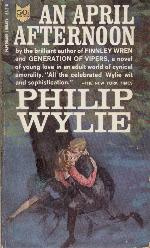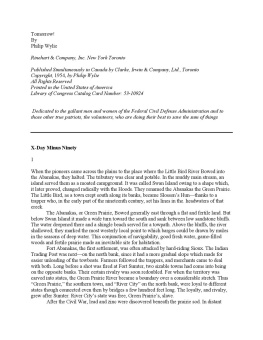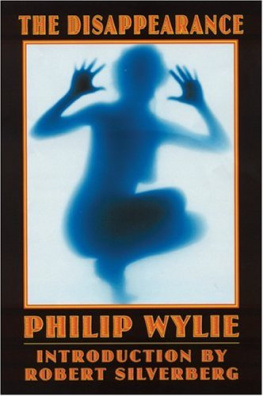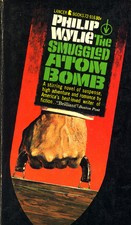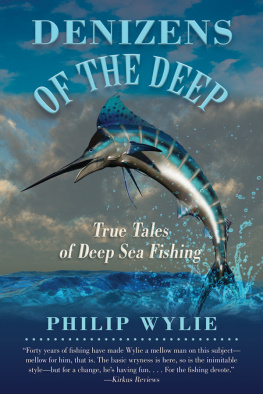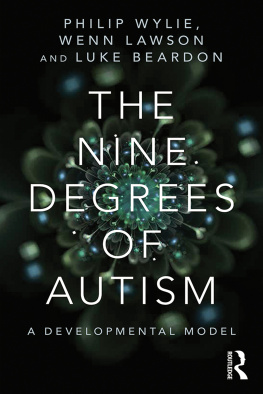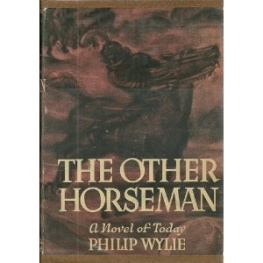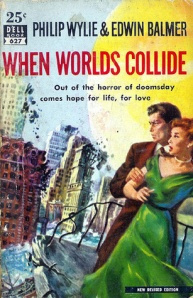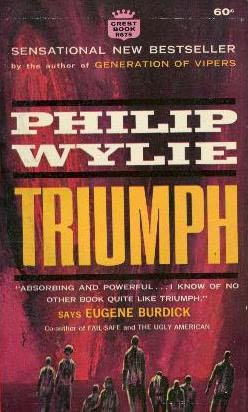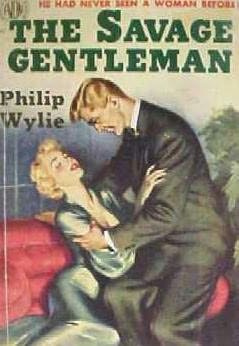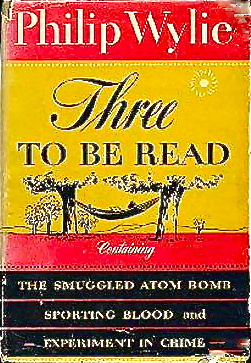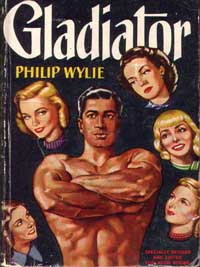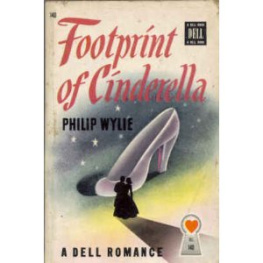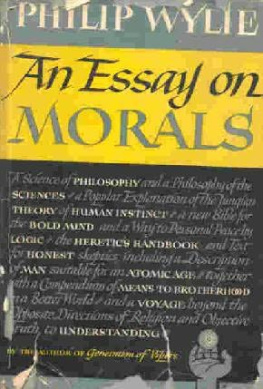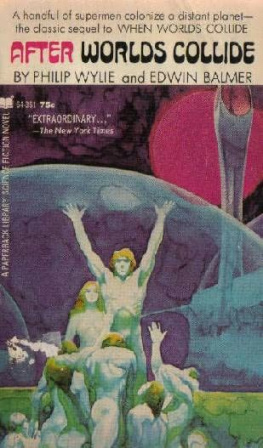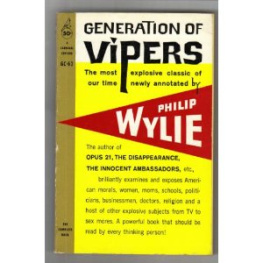Philip Wylie - An April Afternoon
Here you can read online Philip Wylie - An April Afternoon full text of the book (entire story) in english for free. Download pdf and epub, get meaning, cover and reviews about this ebook. genre: Art. Description of the work, (preface) as well as reviews are available. Best literature library LitArk.com created for fans of good reading and offers a wide selection of genres:
Romance novel
Science fiction
Adventure
Detective
Science
History
Home and family
Prose
Art
Politics
Computer
Non-fiction
Religion
Business
Children
Humor
Choose a favorite category and find really read worthwhile books. Enjoy immersion in the world of imagination, feel the emotions of the characters or learn something new for yourself, make an fascinating discovery.
- Book:An April Afternoon
- Author:
- Genre:
- Rating:4 / 5
- Favourites:Add to favourites
- Your mark:
- 80
- 1
- 2
- 3
- 4
- 5
An April Afternoon: summary, description and annotation
We offer to read an annotation, description, summary or preface (depends on what the author of the book "An April Afternoon" wrote himself). If you haven't found the necessary information about the book — write in the comments, we will try to find it.
An April Afternoon — read online for free the complete book (whole text) full work
Below is the text of the book, divided by pages. System saving the place of the last page read, allows you to conveniently read the book "An April Afternoon" online for free, without having to search again every time where you left off. Put a bookmark, and you can go to the page where you finished reading at any time.
Font size:
Interval:
Bookmark:
For ten days I had been wondering if she would kiss me. I had fervently hoped so, in spite of knowing that her kiss would hurt as much as the others had and for as long, which would be the length of my life. I had tried to guess her reactions in various possible places, so that I could be best assured of the poignant token, the touch of her lips, Virginia. I'd thought of meeting the steamer, but there would be the thundering baggage, the people, and she might overlook the gesture in her hurry to annex a customs inspector. I'd thought of the station platform-straight privet, and the blue rails that measured the distance between Reedy Cove and New York in minutes--eighty of them.
But I had decided upon our porch, because the big lilac was in bloom and because there was bustle at the station, also.
I hadn't admitted to myself that reason for waiting at home to greet her until the car came up the drive. I'd pretended my Ph.D. thesis had prevented the trip to town, and I'd feigned not to hear when John called up the stairs to say it was train time.
Of course, when I saw her, I knew I needn't have worried. She stood up in the roadster as John slowed it and she was out before it stopped moving. She detached herself, as if she were some bright ornament of the machine-or the reason for its being.
She was in my arms--and she kissed me four times.
She said, "Frankie!" She had one of those soft, deep voices that seem to exist in the air after they have been used. At least, such voices give a particular and lingering significance to all they express. She said, "It's grand to see you!"
I said, "Welcome home, Virginia! How was Europe?"
"Nasty! Hurry up, John! Look at the lilacs! Oh, Frankie, I'm glad to be here!
Where's Connie?"
Connie appeared, then, and kissed her daughter. They didn't look like sisters--but they looked near enough of an age to make their true relationship seem improbable. I thought of that, as I had a great many times before. But mostly I thought of Virginia's kisses. Enthusiastic, friendly--and never to be anything else. Perhaps she was fonder of me than of anyone except Connie and John--her mother and father--but if I ever allowed a hint of what I felt to appear in the return of those treasured kisses-
I never imagined what would follow that. I couldn't.
My life is full of such contradictions.
They went into the house--talking about Paris and the war in Spain and school-
and I followed, laughing in the right places and thinking about the contradictions.
I adored Virginia and she was fond of me and I could not speak of it to her. One of many strangenesses. I had every luxury and comfort on earth-except the luxury of knowing who I was and from where I had come. For my twenty-three years, I had a quite comfortable amount of fame, but the fame I coveted most I could never hope to have. I had a fortune the size of which sometimes astonished me, but I would have given all of it
-ecstatically--for anyone of at least three things.
I thought that, and we were in the living room--a vast place with so many windows that it was part of the Sound and the evening. Shadows fell, the tide gathered back the sea, plates chinked in the dining room, we listened to Virginia's adventures, and I marveled remotely at the luck and lucklessness of my life. Possibly it was self-pity and yet--I was happy. In any case, my introspection kept me from seeing what had happened to Virginia until later that evening.
Self-pity....
John and Connie Sheffield had adopted me to "round out" their affectionate and stimulating family--Larry and Ivan and--Virginia. I'd been left in a basket in front of a church. Those are baffling antecedents--a basket and a flight of stone steps. The abandoned infant had been ill--infantile paralysis. My right leg dragged a little when they took me, in a new suit of clothes, out to the house on Reedy Cove. I was four. I can still remember what impressed me most: the warmth of the house. Seventy degrees Fahrenheit had been ungermane to the orphanage budget. Virginia was six months old then; Ivan a year younger than I; Larry had just learned to walk.
I grew up with the name of Sheffield. "Francis" had been Connie's favorite uncle.
My adoption had never been a secret--John and Connie were forthright--and, in a sense, it had brought to me greater love and special attention. My lameness, never quite completely remedied, had further evoked particular sympathies. But the world's most accomplished physicians had restored me to the utmost of their abilities, so that I limped only a little.
I'd been "bright" in school. My penchant for writing, the compensation, doubtless, for a sedentary youth, had been ardently encouraged. I was nineteen when I wrote
"Chemin des Dames" and very much amazed to see the verse become a sort of Armistice Day classic. It led to several books of verse and a syndicate job and my ambition to teach English. Then--when Grandma Sheffield had died--closing her lovely blue eyes all too prematurely for us four kids-she had left a will that said there was already plenty for Larry and Ivan and Viginia and so, the bulk of her estate, when all debts were paid, would go--to me. John and Connie were delighted. So were my brothers. So was Virginia. Then--and always. That's the way the Sheffields were. We loved each other, and I belonged to the family. Only--I could never speak to Virginia, because she had forgotten, really, that I was not her brother.
And there were other things. A letter. My wants.
Anne called us for dinner. I could remember Anne when her front teeth were crooked and homely. Now she had a plate, and they were perfect. Anne was a retainer-
and typical of John and Connie. They could have had estates, a town house, a butler.
They preferred Reedy Cove and the meandering residence which had extended itself with family needs--a nursery, a game room, a studio for Virginia when she studied art. It was a house which could have included a blimp hangar and remained a home. The most recent addition had been a bar. John and Connie were "modern" even in the war years--we had never called them "father" and "mother," for example. Again, the bar. We were allowed to drink because of John's wise code: the only "thou shalt not" is "thou shalt not"--but every privilege carries its own responsibility. I have never seen a better or a more workable philosophy.
It was a special dinner--for Virginia. She'd been in France for eight months and we'd had debates on what she had missed most and what her favorite things were.
Tomato soup with whipped cream, corned beef hash, chili sauce, watermelon pickles, creamed onions, apple pie la mode. Not, perhaps, a dietician's dream, but Virginia's.
Still, I thought I began to detect a cloud in the brightness of her eyes, or strain in the timbre of her voice, as she exclaimed over each dish.
"Who thought of corned beef hash?" she asked.
John grinned and took a bow. His grin always wrinkles his nose and moves muscles beneath the mixture of very black and very white hair on his temples. It's a dual purpose grin. I've seen him use it When his golf ball stopped rolling two hundred and eighty yards from the tee, and again, when news came to him that a couple of radicals had blown a wing out of his factory in Bridgeport. "I thought of corned beef," he answered. "It was the first thing you asked for when they put you on regular food after your appendectomy."
"And Connie decided on pie la mode?"
Her mother nodded. "The taste is hereditary. From me you took blonde hair and imagination. You escaped my willfulness. You caught up again with the desserts. As for your methodical traits--they came from John. Why you like watermelon rind pickles, I cannot guess. There's no precedent for it in six generations. A clammy relish--"
Font size:
Interval:
Bookmark:
Similar books «An April Afternoon»
Look at similar books to An April Afternoon. We have selected literature similar in name and meaning in the hope of providing readers with more options to find new, interesting, not yet read works.
Discussion, reviews of the book An April Afternoon and just readers' own opinions. Leave your comments, write what you think about the work, its meaning or the main characters. Specify what exactly you liked and what you didn't like, and why you think so.

